![]()
|
Taylor, Tunnicliff & Co Taylor, Tunnicliff & Co (1901) Ltd |
Location and period of operation:
|
Taylor,
Tunnicliff & Co |
Hanley |
1867 |
present (2021) |
| NOTE: Around 1896 company started to produce porcelain for electrical insulators and
by 1898 production was almost exclusively focused on industrial
ceramics. Earthenware and china manufacturer at Eastwood, Hanley and the Albion Works in Longton, Stoke-on-Trent, England.
|
The London Gazette
24 August 1869
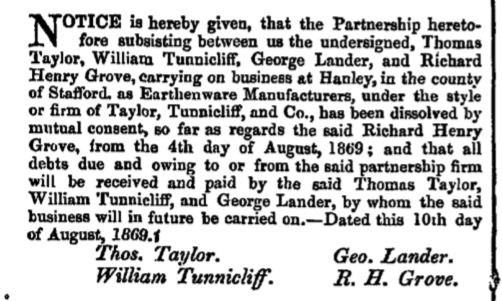
notice that Richard Henry Grove
had retired from the business
The London Gazette
12 March 1901
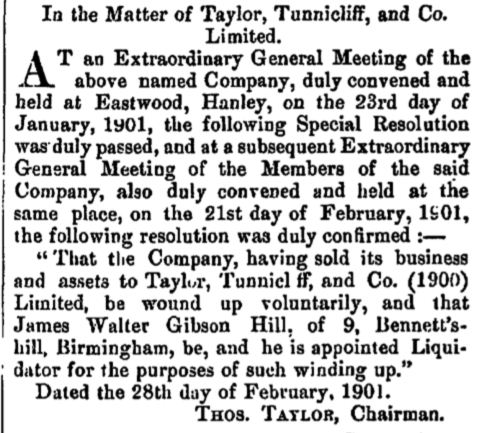
notice that the business and
assets be sold to
Taylor, Tunnicliff and Co (1901) Ltd


Taylor, Tunnicliff, and Co.,
Ltd.,
china lock and door furniture manufacturers,
electrical china manufacturers, artist'
colour men, Eastwood
from..... 1907
Staffordshire Sentinel
'Business Reference Guide to The Potteries, Newcastle & District'
|
Typical ware: Between 1867 and 1898 Taylor, Tunnicliff & Co produced quality ware, often with gilt decoration. They produced oil lamps and a wide range of biscuit barrels and other ware with silver and silver-plate metal lids and rims. After 1898 they focused on manufacturing 'utilitarian' objects, especially electrical insulators. Although in March 1901 they did register the design of a salad, biscuit and condiment set (reg no: 371386). |
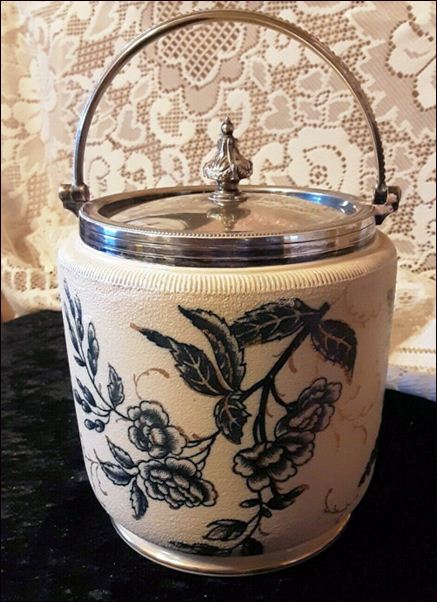
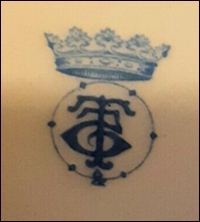
biscuit barrel
Taylor, Tunnicliff & Co
produced a wide range of biscuit barrels and other
ware with silver-plate metal lids

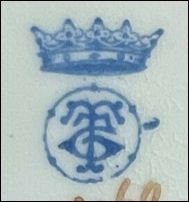
sauce boat in the European
Imari style
 vase for single flower bud |
 perfume bottle in an oil-lamp design |
 whisky decanter |

pin dish (4 inch dia)
in the Willow pattern
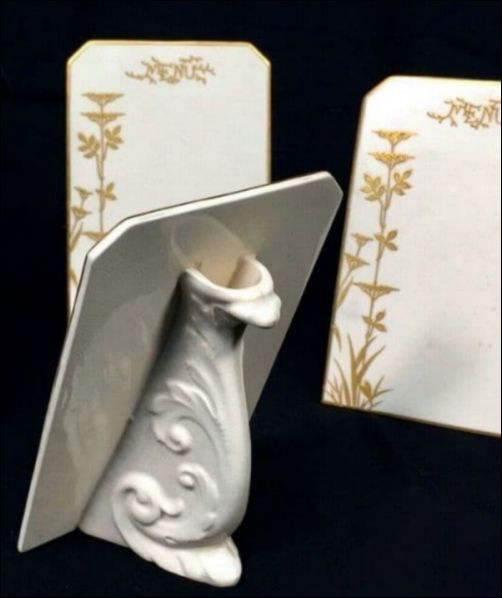
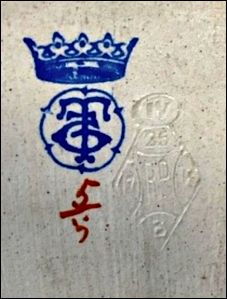
ceramic table menu card holders
with posy flower spill vases to the back
the registration diamond shows that the design was registered on the 25th October 1883
 oil lamp by Taylor, Tunnicliff & Co with a Hinks & Son's Patent burner |
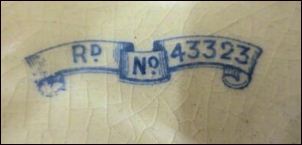 Rd 43323 the lamp is not marked with Taylor, Tunnicliff but has a registration number which shows that the design for the shape of the lamp base was registered by them on 17th February 1886 - described as "a lamp base of wasted form, the lower part of inverted baluster shape, the upper of baluster form but with a groove near the top, milled opening at the top for metal mount" (courtesy: Northern Ceramic Society) |
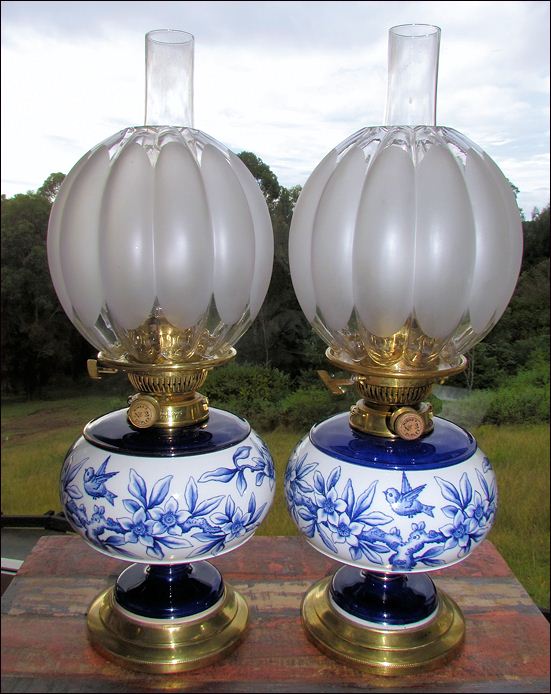 pair of oil lamps by Taylor, Tunnicliff & Co the lamps incorporate the Hinks & Son's Patent oil burner |
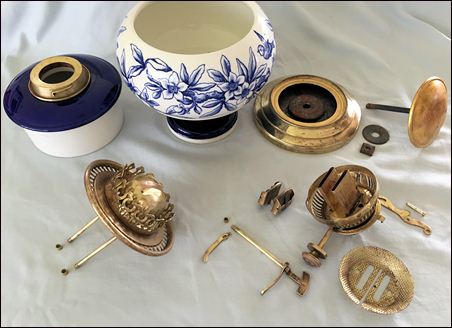 constituent parts of the lamp
|
photos courtesy: Tony Clarke
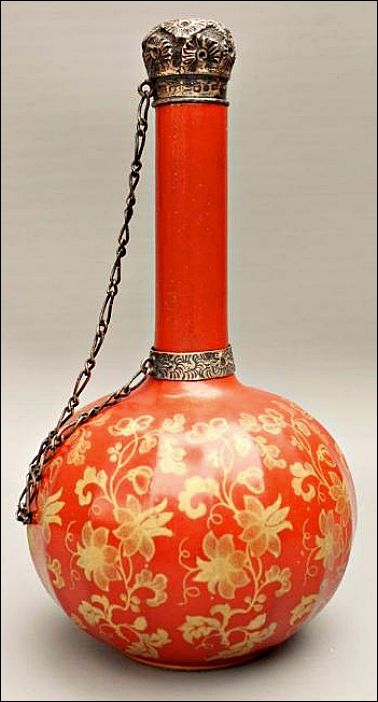 |
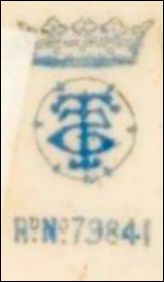 typical mark with intertwined letters for Taylor, Tunnicliff |
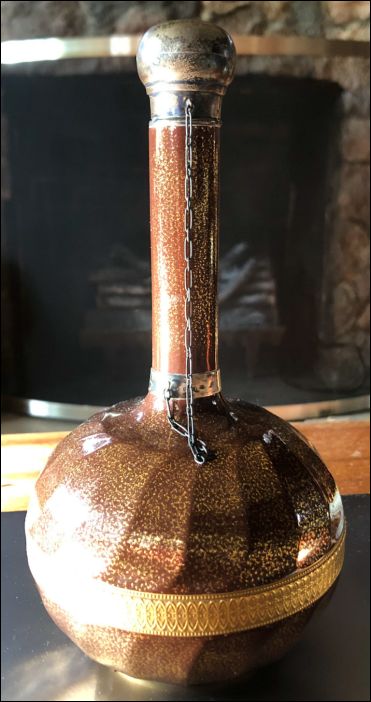 |
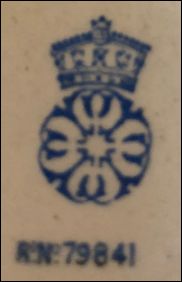 unusual mark but the registration number and the bottle shape show that it was made by Taylor, Tunnicliff & Co |
| decorated with a deep burnt orange ground and floral gilding - the silver mounts have the Birmingham stamp for 1887 |
same
shape scent bottle, decorated with gold freckle on a brown
background photos courtesy: Beth Ingram |
the registration number 79841 shows that the design for this scent bottle shape was registered by Taylor Tunnicliff on the 31st August 1887 which is described as "a scent bottle of globular fluted body with tall cylindrical neck, the neck rim milled for metal mount" (courtesy: Northern Ceramic Society) |
|
Marks used on ware for identification:
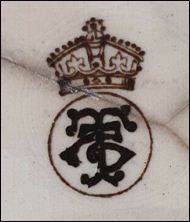

typical marks with the intertwined letters T T
c.1875-98
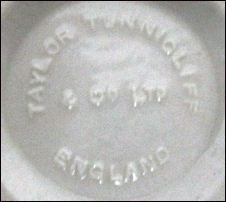
Taylor Tunnicliff
& Co Ltd
England
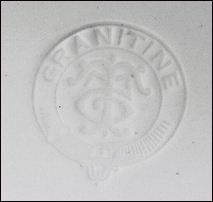
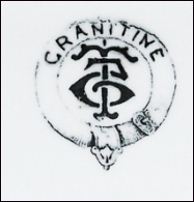
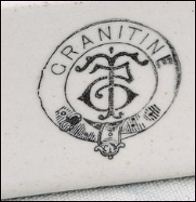
Granitine was a trade mark used for darkroom porcelain
|
Granitine was a trade mark used by Taylor, Tunnicliff & Co for porcelain ware for photographic film developing and processing. |
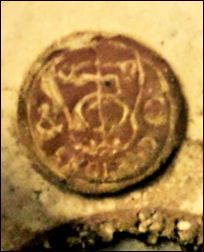
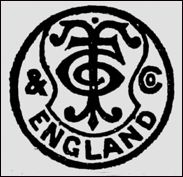
T T & Co
England
mark generally used on electrical porcelain
|
Electrical insulators: From 1898 Taylor, Tunnicliff & Co focused almost entirely on manufacturing industrial ware, particularly electrical insulators. |
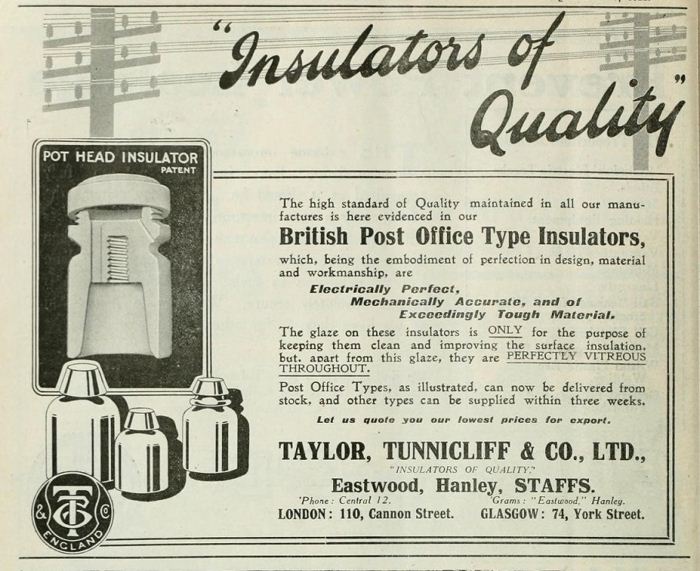
1922 advert for Taylor, Tunnicliff & Co Ltd "Insulators of Quality"
courtesy: Grace's Guide
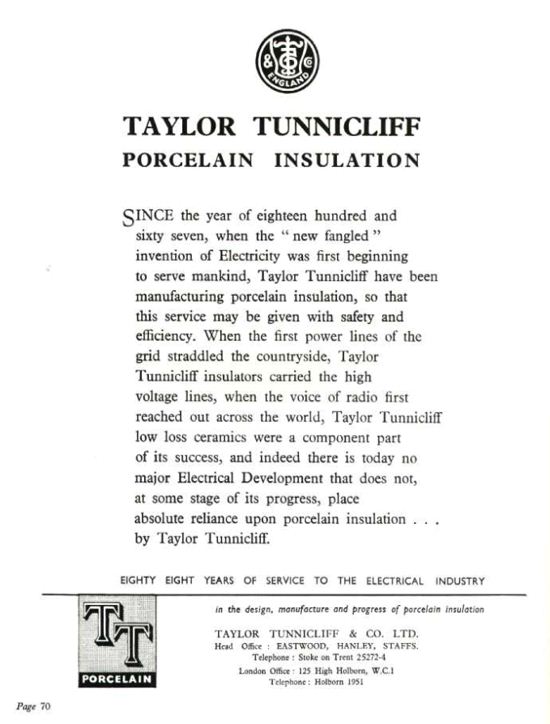
Taylor Tunnicliff
Porcelain Insulation
Prestige and Progress - A Survey
of Industrial North Staffordshire
1955 publication of North Staffordshire Chamber of Commerce - page 70
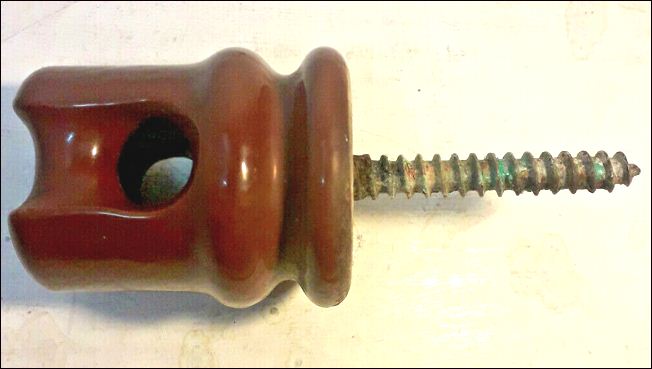 low voltage electrical insulator by Taylor, Tunnicliff & Co |
 typical T T & Co England mark |
The Pottery Gazette
January 1 1906
article on Mr. Thomas Taylor, J.P. and the Taylor, Tunnicliff company
Note the misspelling of the name Tunnicliff (which does not have a letter 'e' at the end')
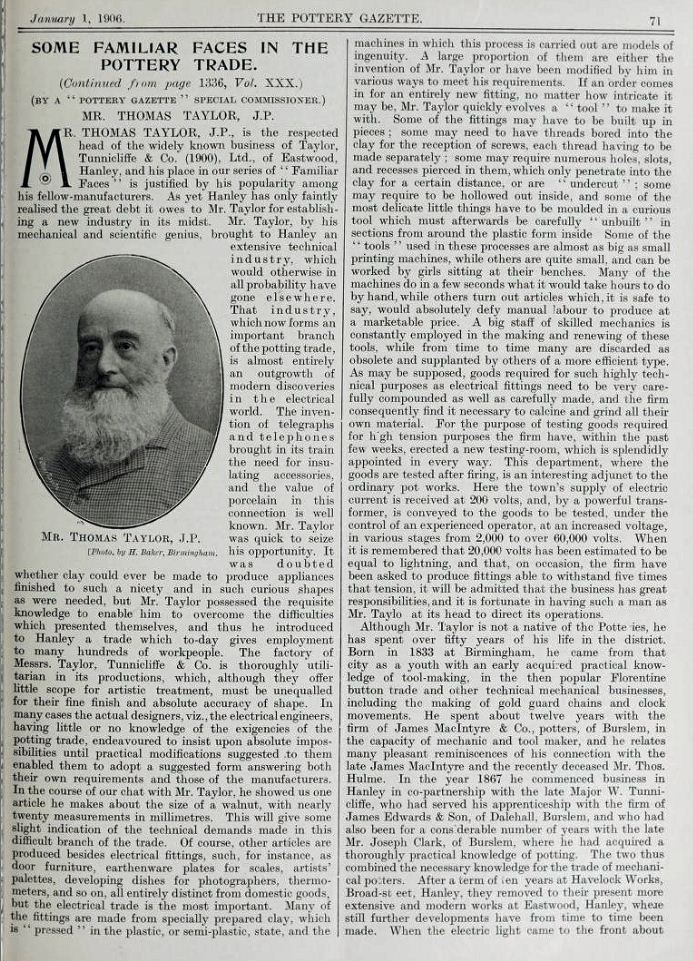
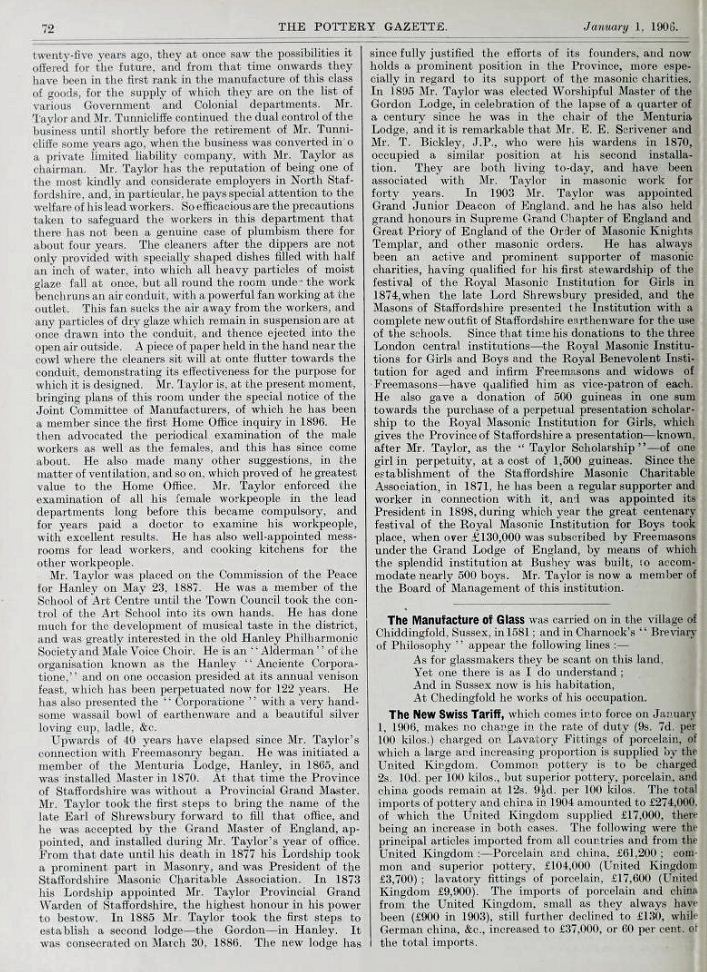
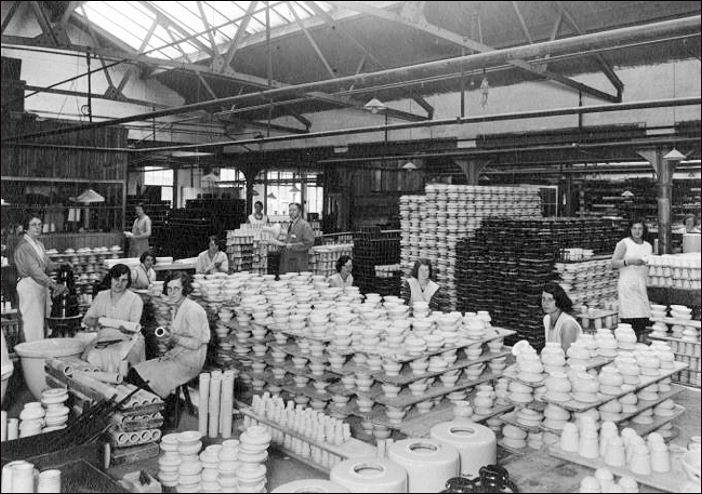
The selection warehouse at
Taylor, Tunnicliff's Eastwood factory, Hanley
Image courtesy of: Mr Phillip Leason
photo: 1930 - Staffordshire Past Track
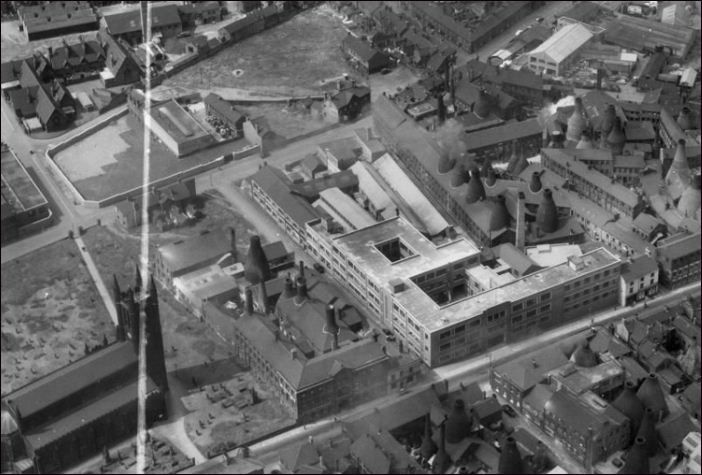
The Albion Works between
Normacot Road and Uttoxeter
Road, Longton
St. James Church is on the left
photos: 1953 Britain from Above
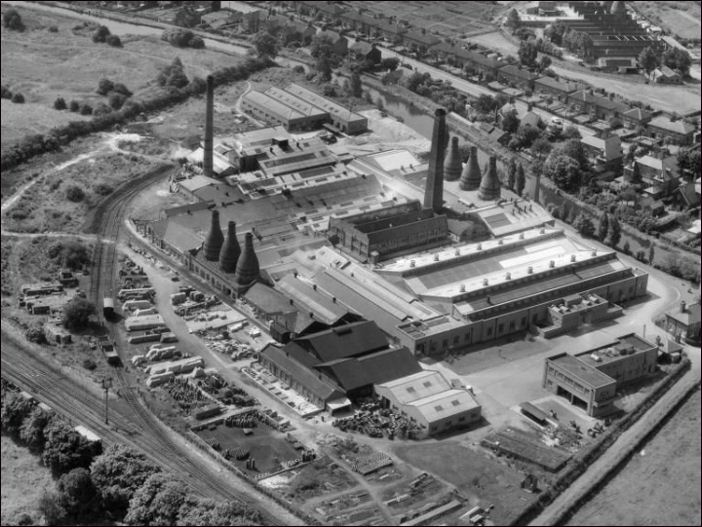
The Taylor Tunnicliff
Electrical Porcelain Factory, Stone
the Trent & Mersey Canal is to the top of the works
photos: 1953 Britain from Above
Questions, comments, contributions? email: Steve Birks